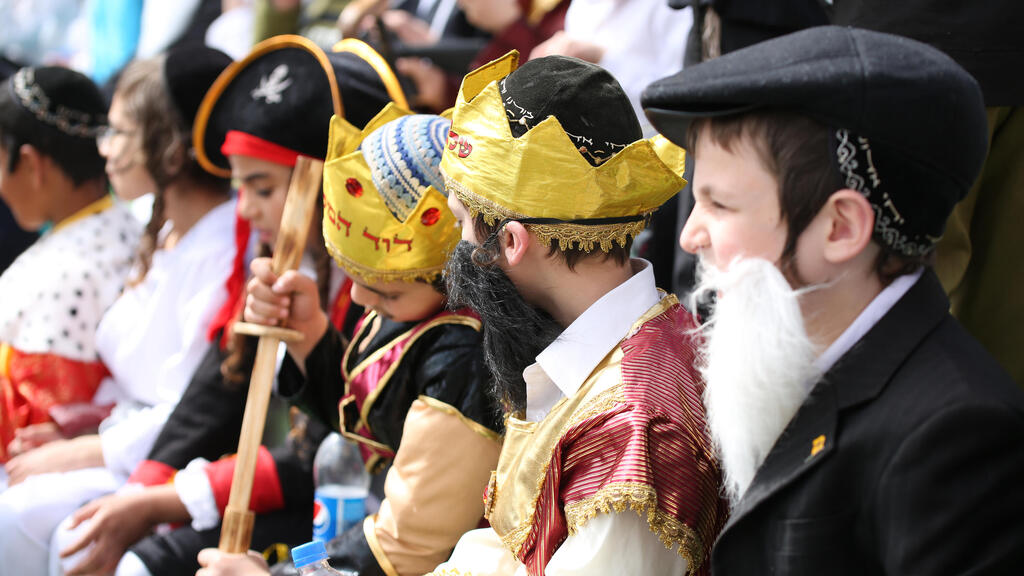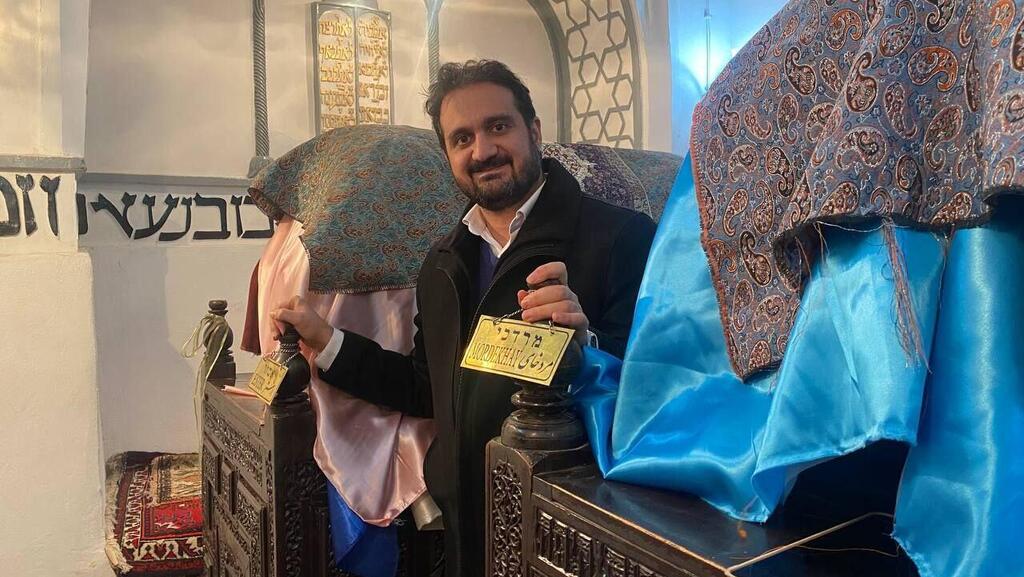Getting your Trinity Audio player ready...
As conflict persists in Gaza, along the Lebanese border, and in the West Bank, IDF soldiers face challenges in observing the laws of Purim. In response to numerous inquiries from soldiers grappling with these issues, Rav Yosef Zvi Rimon, chief rabbi of Gush Etzion Regional Council, offers halachic (Jewish legal) rulings tailored to wartime. Here is a summary of his responses to the various queries received via phone, email and WhatsApp:
Fast of Esther: A soldier who is in operational activity or on alert should not fast.
Shabbat Zachor: On the Shabbat preceding Purim, the weekly Torah reading is supplemented with the Zachor reading in which we are commanded to remember the evil of Amalek and to eradicate it from the face of the earth. Therefore, the Shabbat is called “Shabbat Zachor.” Soldiers unable to gather a minyan (quorum of 10 men) for prayer, are advised to read the Zachor portion from a Torah scroll with ta’amei ha-mikra (cantillation). Those without a scroll, may fulfill their obligation by reading it from a Chumash (Pentateuch) with the intention of yotze yidei chova (fulfilling the obligation) during the “Ki Tetze” or “Vayavo Amalek” Torah readings on Purim.
The question of whether eradicating Hamas terrorists fulfills the mitzvah of eradicating Amalek, has arising in the run-up to the holiday. The rabbi emphasizes that when we mention Amalek we also remember the historical and ongoing threats to the Jewish people, be it the Egyptians and Amalek, or Haman and the Nazis.
Reading the Megillah (Book of Esther): For soldiers unable to attend readings of the Megillah (Book of Esther) on either Purim night and/or Purim morning, the rabbi advises them, relying on many previous psak Halacha, to read it on the preceding Thursday, Adar 11 (March 21), or even the preceding day, without reciting the special blessings. If, even after this, soldiers are able to hear the Megillah during the communal reading, then of course they should participate in the reading.
Preference should be given to the nighttime reading due to halachic principles and the unpredictable nature of combat missions.
Regarding the recitation of the Hallel prayer without Megillah reading, the rabbi highlights the opinions of a number of Jewish legal decisors, including Rav Ovadia Yosef, who advocate saying Hallel without the blessing in such cases.
Purim Observance in Ancient Cities: The rabbi has deliberated about whether Purim should be celebrated in Gaza in the same way as it is in Jerusalem, on Shushan Purim, which is the day after the main Purim observance. It is common knowledge that Purim is celebrated on the 14th of the Hebrew month of Adar, except for Jerusalem, where it is celebrated a day later, on the 15th of Adar, as did the Jews in Shushan, the capital of the Persian Empire, in the days of King Achashverosh.
Israel has several ancient cities, including Tiberias, Hebron and Jaffa. There is some controversy as to whether Purim should be celebrated in such ancient walled cities on Shushan Purim. While historical records suggest a dual Purim observance in Gaza in the past, the rabbi rules that since we cannot determine whether Gaza was surrounded by a wall and where was its exact location, and since today there is no Jewish settlement in Gaza, we can make do with reading the Megillah in Gaza on the 14th of Adar only.
Mishloach Manot: The mitzvah of “sending portions of food to one another” is found in Megillat Esther, and the Sages explain that on Purim day a person is obligated to send at least two portions of different foods to at least one person.
Soldiers who know in advance that they won’t be able to fulfill the obligation of giving to the poor or sending food on Purim day may appoint a messenger to distribute funds or food on his behalf, provided that they are delivered on Purim Day and not beforehand. Although the original custom is to give the mishloach manot to a friend, the rabbi recommends, particularly during wartime when unity is so important, "to look for someone we do not know or do not have a special relationship with, and give such a person a mishloach manot. This is how we will increase the brotherhood and friendship among the people of Israel."
Matanot Le’evyonim (Gifts to the poor): This mitzvah is also found in Megillat Esther. The Sages determined that, in order to fulfill the mitzvah, every person is obligated to give money (enough to buy food) or food on Purim day to two poor people.
The rabbi emphasizes that those who gave "gifts to the needy" before Purim, did not fulfill their obligation. Therefore, in this case too, to fulfill the obligation of giving to the poor, soldiers may appoint a messenger to distribute funds or food on Purim day. Those unprepared beforehand should set aside funds for this purpose and distribute it to the poor when they have a chance after Purim.
Ad dlo yada (can not distinguish) drinking: The tractate of Megillah in the Babylonian Talmud states that, on Purim, one must drink wine until one reaches a state of “ad delo yada,” where one cannot distinguish between the cursed Haman and the blessed Mordechai. On the other hand, in the very same place, a story is told about drunkenness, which caused a tragedy. Therefore, the sages recommended drinking a small amount of spirit, in a way that would not lead to loss of control. The rabbi emphasizes that this is the recommendation for the general public, but when it comes to soldiers on combat missions, it is obviously forbidden for them to endanger themselves and their friends by drinking spirits.
How can we be joyous this year?
Joy in Purim is not a recommendation, but rather an actual mitzvah. It turns out that a substantial number of inquiries in recent weeks have dealt with the issue of how to be happy this year, when there are so many bereaved families, kidnapped and seriously wounded people.
The rabbi, citing Rav Abraham Isaac Kook, emphasizes that the aim of real joy is not escapism from the harsh reality and a distraction from the evil that surrounds us, but rather joy on Purim stems from a genuine appreciation of life’s blessings, even amid challenges.
“The pain and the crying over the hostages is terrible, and we hope that we will see them return, and that they will recover emotionally and physically. The pain and crying over the dead and wounded will continue forever. We acknowledge the hardships, yet it is necessary that we focus on gratitude and resilience, finding strength in unity and the enduring spirit of the Jewish people. In Purim, we try to gain strength, rejoice in all the beautiful things we have. We will remember the soldiers, the kidnapped and the wounded. We will pray for them, but at the same time, we will also rejoice over all the blessings we have. We will try to see how wonderful our soldiers are and how wonderful the people of Israel are."
- Rabbi Yosef Zvi Rimon is the Rabbinic Head of JCT - Lev Academic Center, the chairman of Sulamot and the chief rabbi of Gush Etzion Regional Council






